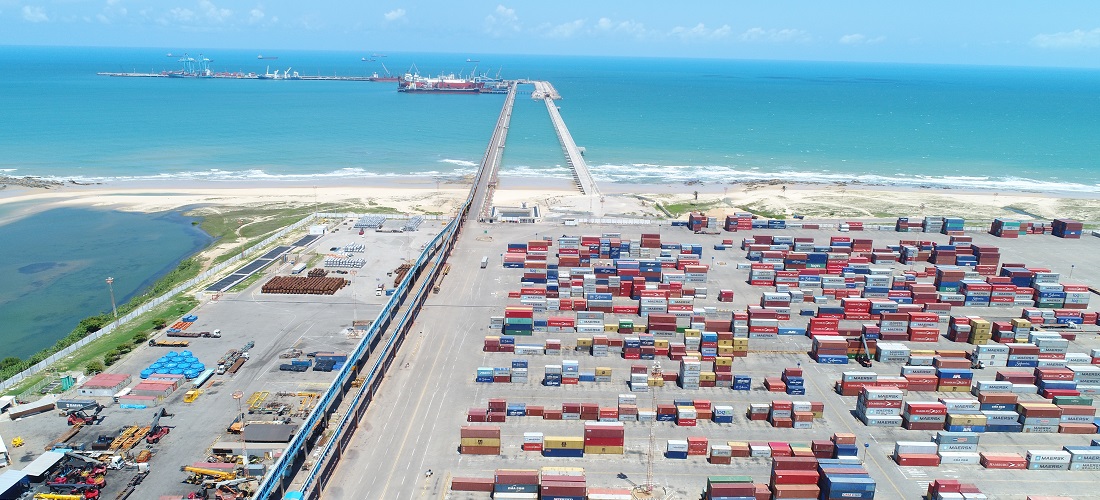
New regulatory framework may increase grain flow in Ceará ports and reduce freight prices
Dec, 17, 2021 Posted by Gabriel MalheirosWeek 202148
The new railroad regulatory framework approved last week by the Chamber of Deputies is expected to increase the flow of products, mostly grains, in the ports of the state of Ceará (Pecém and Fortaleza), on top of generating cheaper freight costs and bolstering projects such as the Transnordestina railway. Such opinion was expressed by the specialists consulted by the journal Diário do Nordeste.
The Brazilian Federal Government expects R$ 80 billion to be added into the railway sector in the country, causing a decrease of nearly 40% in freight prices as a response to the decrease in dependence on road modal that would shortly follow.
According to Augusto Fernandes, CEO of JM Négocios Internacionais, the majority of investments would be directed to the South-Southeast axis of Brazil given that these are the regions where most of the consumer market and firms are located at. Bruno Bertoncini, professor at the Federal University of Ceará (UFC), seconded these claims.
Notwithstanding, Fernandes believes that the state of Ceará and the Northeast region altogether could still benefit from the new framework whatsoever. Among possible benefits, he mentions the increase in the flow of products at Pecém and Fortaleza.
“Ceará shall benefit because we already have railroads that transport products to the state of Maranhão, as well as railroads connecting the south of Ceará to Maceió and a junction of railways that can be easily extended to the state of Bahia. Also, the Pecém port shall benefit because it already is a well-established port to which we can easily add railway lines. By doing so we can raise the flow at the terminal and at the Port of Fortaleza”, he said.
“Ceará, as well as its ports of Pecém and Fortaleza, may benefit from having its grain flow increased. The South and Southeast may attract a greater amount of investments, but the Northeast region will be the hotshot and, in a few years, we shall see a light at the end of the tunnel for the logistical problem of operating in a country with continental dimensions, added Fernandes.
Bruno Bertoncini also believes that the updated framework could lead to greater integration between already-existing projects and new models. Similar to Fernandes, the UFC professor believes that the flow of grains shall be on the rise thanks to the new railroad regulatory framework.
“I believe it can have an impact. But the sector is still very tied to the transportation of large volumes. In the medium term, it might be possible to think of new connections based on the implementation of the Transnordestina railroad. Maybe even a future integration with the north-south railway. It could even boost the port of Pecém in terms of grain flow, for example,” said the professor.
New model
According to the text that was recently approved in Congress, the Legal Framework for Railways enables the participation of private actors in transport services in ways that differ from the current model.
Among them, it was approved the use by permission instead of concession. In addition, contract terms will be valid from 99 years instead of 25, being extendable even further.
Future projections
Still referring to the possible benefits of the legal framework, Augusto Fernandes mentioned that railroad participation in the logistics sector in Brazil may leave the current 21% to reach 40% in comparison to other modals in the next 15 years.
These projections, however, would depend on how advanced would be market conditions and on the national market’s availability.
Source: Diário do Nordeste
To read the full original article, visit the link:
-
Shipping
Jun, 04, 2021
0
Maersk forecasts growth in world trade between 5% and 7%
-
Ports and Terminals
Mar, 08, 2020
0
2.7 million TEU handled by Brazil`s ports in 2019
-
Ports and Terminals
Oct, 03, 2023
0
Poland, Ukraine and Lithuania reach historic deal on grain exports
-
Ports and Terminals
Apr, 20, 2022
0
Cargo handling grows in the Port of Itaqui


